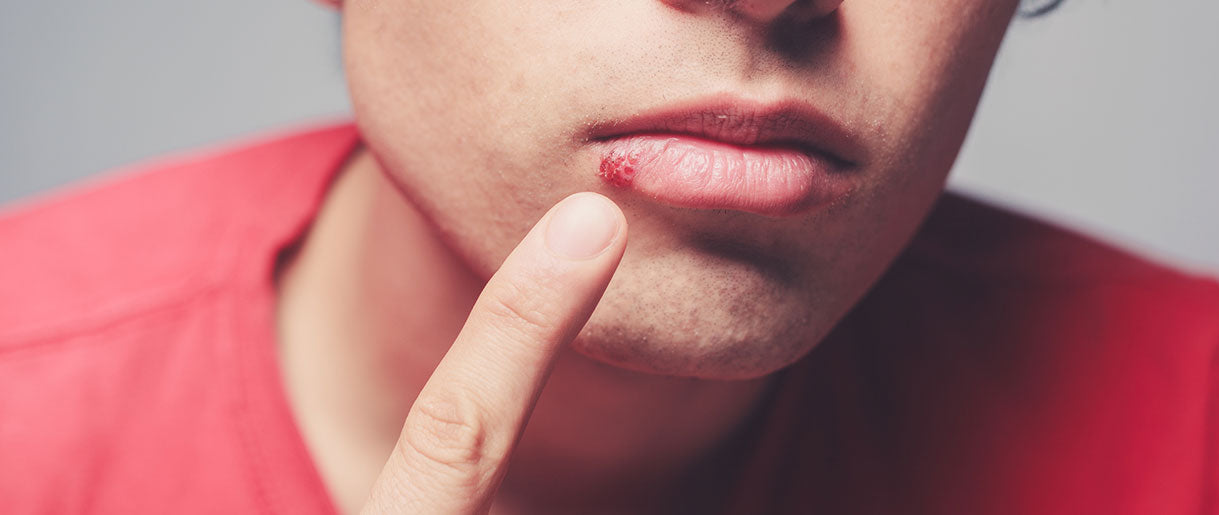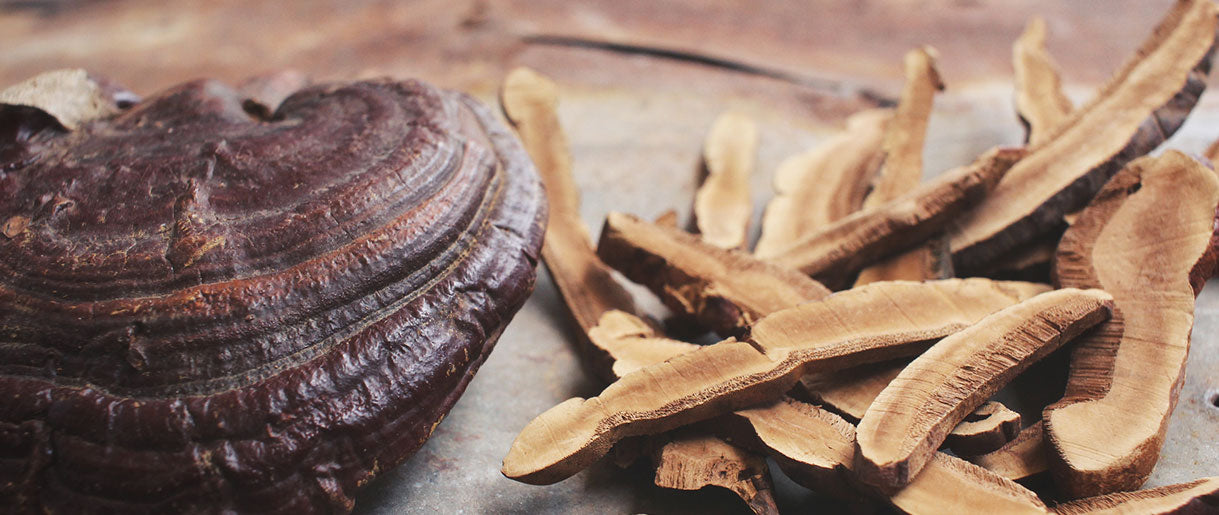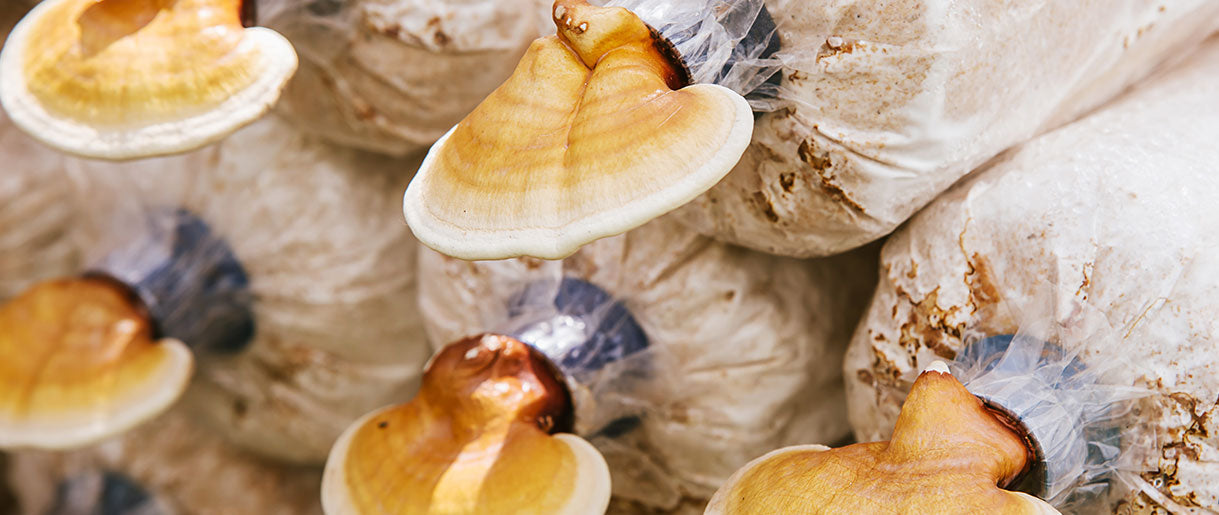Reishi mushrooms, or Ganoderma lucidum, are a popular traditional supplement known for their potential health benefits. However, there's limited research on their safety during pregnancy.
Some studies suggest reishi mushrooms might support immune health, which could benefit pregnancy. But, they can also have anticoagulant properties, which may pose risks, especially close to delivery. Additionally, like any supplement, they can carry potential risks of contamination or allergic reactions.
Therefore, pregnant individuals must consult a healthcare provider before starting any new supplement regimen, including reishi mushrooms. Remember, no supplement should replace a balanced diet and appropriate prenatal care.
While the potential benefits of reishi mushrooms may seem attractive, it's essential to delve deeper and understand the current body of scientific evidence, especially regarding consumption during pregnancy. After all, the health and well-being of both mother and baby are paramount. To assist in this journey of knowledge, this article will provide a comprehensive overview of reishi mushrooms, including their potential benefits and risks in pregnancy.
Reishi Mushrooms: A Brief Overview

Description and Key Components of Reishi Mushrooms
Reishi mushrooms, one of the most revered medicinal mushrooms, stand out among other culinary mushrooms due to their unique attributes. Unlike your typical raw mushrooms, reishi mushrooms are woody and bitter, often prepared via extraction methods for medicinal purposes rather than direct consumption.
While the Reishi mushroom taste may not be the best, the reishi mushroom is a powerhouse of potential health benefits. Its key components include polysaccharides, triterpenoids, and peptidoglycans, believed to contribute to its anti-inflammatory properties. The mushroom also boasts a notable vitamin D content, uncommon in many foods.
Traditional and Modern Uses of Reishi Mushrooms
Traditionally, reishi mushrooms have been used for centuries in Asian cultures as medicinal herbs. They were prized for their potential to support health and longevity, often brewed into Reishi mushroom teas or concoctions.
The reishi mushroom has gained popularity as a potent adaptogen in modern times. Adaptogens are herbs and mushrooms that help the body resist stressors. Moreover, its nutritional benefits are drawing attention, including a generous amount of vitamin D, an essential nutrient for bone health and immune function.
Evidence for Potential Health Benefits and Risks
There's growing anecdotal evidence and scientific research pointing to mushrooms' health benefits, with reishi mushroom being a prime example. Along with their anti-inflammatory properties, these medicinal mushrooms are reported to boost the immune system and support overall wellness. In addition, the vitamin D found in reishi mushrooms also plays a crucial role in various bodily processes, which could further accentuate its potential benefits.
However, it should be noted that while most people can safely consume reishi mushrooms, some may experience digestive upset or allergic reactions. In addition, the mushroom's anticoagulant properties also mean it should be used cautiously by those with bleeding disorders or those on certain medications.
In pregnancy, although reishi mushrooms and their nutritional benefits—particularly their vitamin D content—may seem appealing, it's vital to remember that what's safely consumed for most may not apply universally. A healthcare provider should always be consulted before introducing new elements, such as medicinal mushrooms or herbs, into a pregnancy diet.
Given the complexity of our bodies and the multiple variables involved in health and nutrition, the power of the reishi mushroom as a beneficial supplement may depend largely on individual factors. Therefore, while there is potential for these medicinal mushrooms to offer health benefits, the decision to consume them, especially during pregnancy, should be made in consultation with a healthcare provider.
Understanding Pregnancy Nutrition

Importance of Balanced and Careful Nutrition in Pregnancy
Pregnancy is a time of significant changes, not only physically but also in terms of a pregnant woman's nutritional needs. Adequate nutrition is paramount for the health of the unborn child and the pregnant woman. Moreover, a well-balanced diet can benefit the pregnant woman's mental and emotional well-being.
A balanced diet during pregnancy involves a mix of proteins, carbohydrates, and fats and a sufficient intake of vitamins and minerals. Nutrient utilization during pregnancy is crucial and can have direct impacts on the health of the mother and the child. For instance, maintaining blood sugar control is essential to prevent gestational diabetes, which can affect both the mother's and child's health.
The correct balance of nutrients also helps manage weight gain, a common concern for many pregnant women. Excessive or inadequate weight gain can cause complications such as high blood pressure. Therefore, pregnant women need to eat a well-rounded diet that provides the necessary calories and nutrients without leading to excessive weight gain.
Interesting Read: See how Reishi mushroom facilitates weight loss.
Common Food and Supplement Considerations During Pregnancy
Pregnant women need to ensure they're eating a variety of nutrient-dense foods. A diet rich in fruits, vegetables, whole grains, lean proteins, and healthy fats can provide most of the necessary nutrients. B vitamins, particularly folate, are critical during pregnancy to support the baby's neural tube development.
But while a balanced diet is crucial, certain things may not be safe during pregnancy. For example, some types of seafood high in mercury, raw or undercooked meats, and unpasteurized dairy products should be avoided.
Furthermore, certain dietary considerations become particularly important as the pregnancy progresses. For instance, increased caloric intake is typically necessary in the third trimester and may be necessary to support milk production after the baby is born.
Pregnant women may also consider certain supplements to ensure they're meeting their nutritional needs. However, it's crucial to remember that supplements should never replace a balanced diet. In addition, any supplement intake should be discussed with a healthcare provider to ensure they are safe during pregnancy.
Reishi Mushrooms and Pregnancy: The Current Research

Overview of Existing Research on Reishi Mushrooms in Pregnancy
The world of medicinal mushrooms like Reishi, also known as Ganoderma Lucidum, has been a topic of interest in traditional Chinese and Western medicine. Some pregnant women might wonder, "Is reishi mushroom safe to consume?"
Research into eating mushrooms, especially medicinal mushrooms, during pregnancy is still emerging. However, some scientific studies suggest potential benefits.
The field of culinary mushrooms, including Reishi, lion's mane, and turkey tail, has seen a surge in interest due to their potential health benefits. However, when it comes to mushrooms during pregnancy, more clinical trials are needed to determine their safety and efficacy.
Benefits Potentially Associated with Reishi Mushrooms During Pregnancy
Several potential benefits are associated with reishi mushrooms during pregnancy. Known for its immune-building properties, Reishi could support the immune system of pregnant women. In addition, some research suggests that(1) it may help manage gestational diabetes due to its potential effects on blood sugar control. Additionally, some studies suggest that(2) Reishi may support liver function and benefit pregnant women with gestational hypertension. These studies indicate that Reishi fights diabetes and keeps high blood pressure at bay.
Beyond these physical benefits, some evidence( suggests that Reishi could treat anxiety and support the nervous system, potentially helpful for managing postpartum depression. These findings align with the traditional uses of medicinal mushrooms in supporting mental and emotional wellbeing.
Moreover, other culinary mushrooms like Lion's mane have been associated with boosting milk supply, a benefit that could extend to Reishi. But, again, it's crucial to distinguish between anecdotal evidence and clinically proven benefits, especially when considering the safe consumption of such substances for expecting mothers.
Risks and Possible Side Effects of Reishi Mushroom Consumption in Pregnancy
While there are potential benefits, it's essential to consider the possible risks of eating mushrooms, specifically Reishi, during pregnancy. Certain mushrooms can contain toxic compounds. While Reishi is not typically categorized as toxic, eating raw mushrooms or foraged mushrooms without proper identification could pose risks. Furthermore, some people may experience side effects from Reishi, including dry mouth, digestive upset, or allergies.
The potential impact on the developing fetus is another consideration. There's no concrete evidence on whether eating reishi mushrooms during pregnancy could cause developmental harm. However, as with any supplement or dietary change during pregnancy, it's essential to consult a healthcare provider to ensure safety.
Summary of the State of Current Knowledge and Research Gaps
In summary, the potential of reishi mushrooms during pregnancy is intriguing, with some evidence suggesting positive effects on gestational diabetes, high blood pressure, and mental health. However, existing research is still limited, and there's a need for more studies to confirm these benefits and establish whether reishi mushrooms are safe during pregnancy.
Reishi mushrooms offer many potential health benefits, from immune support to blood sugar control. However, more research is needed to establish the safety and benefits of consuming reishi mushrooms during pregnancy and breastfeeding.
Until then, pregnant and breastfeeding women should be cautious and consult with a healthcare provider before introducing Reishi or any other medicinal mushrooms into their diet. In the world of pregnancy and nutrition, the age-old adage holds: better safe than sorry.
Expert Opinions: What Do Healthcare Providers Say?

Survey of Views from Obstetricians, Nutritionists, and Other Healthcare Providers
Among healthcare providers, there is a range of opinions on whether pregnant women should eat mushrooms, especially medicinal mushrooms like Reishi, during pregnancy. Many obstetricians and nutritionists recommend a diet rich in vitamins and nutrients to support a healthy pregnancy. Culinary mushrooms, being a good source of B vitamins and vitamin C, are typically encouraged.
However, regarding medicinal mushrooms, the views are more divided. Some healthcare providers point to the potential benefits of mushrooms like Reishi, which are believed to help control blood pressure and possibly manage gestational diabetes.
But they often emphasize that these potential benefits come from clinical studies conducted on the general population, not specifically on pregnant women. Therefore, they highlight that more research is needed to confirm these benefits for pregnant women and their unborn children.
On the other hand, healthcare providers have a consensus about avoiding potentially toxic mushrooms. For instance, "magic mushrooms," which contain psychoactive substances, are universally discouraged during pregnancy due to potential developmental harm. Similarly, consuming foraged mushrooms without proper identification is cautioned against due to the risk of poisonous mushrooms.
The Role of Reishi Mushrooms in Holistic or Alternative Pregnancy Care
Medicinal mushrooms often play a more prominent role in holistic or alternative pregnancy care. A master herbalist, for instance, may recommend Reishi for its potential as an immune builder and overall health supporter. They might suggest incorporating reishi pre-pregnancy and in the first trimester, but always with the caveat to listen to the body and stop if any adverse effects are experienced.
Holistic practitioners often acknowledge the lack of comprehensive research regarding Reishi's safety and efficacy during pregnancy. Still, they might consider the centuries-old use of these mushrooms in traditional medicine and their observed benefits.
Yet, even in this context, medicinal mushrooms like Reishi are generally seen as a complement to, not a replacement for, standard prenatal care. And the consumption of potentially toxic mushrooms like magic mushrooms is strongly advised against.
Safe Use of Reishi Mushrooms During Pregnancy: Guidelines

Recommended Dosage and Safe Ways to Consume Reishi
While there's no universally accepted dosage for reishi mushrooms, especially during pregnancy, general expert guidelines suggest that lower consumption may be safer. Unlike culinary mushrooms, medicinal mushrooms like Reishi are typically consumed in extract or supplement form, not usually eaten raw or cooked.
If you consume reishi mushrooms during pregnancy, do so in moderation, and listen to your body for any signs of discomfort or adverse reactions. High doses are typically discouraged, especially for pregnant women, due to the lack of concrete evidence about the impact of medicinal mushrooms on pregnancy outcomes.
Additionally, the manner of consumption can impact the effect of Reishi. Rather than eat the mushroom directly, many brew it into a tea or take it as capsules or tinctures. This way, it's easier to control the amount consumed.
Considerations for Purchasing and Preparing Reishi Mushrooms
When purchasing reishi products, opt for those from reputable sources. This is crucial because, unlike culinary mushrooms, medicinal mushrooms like Reishi can have varying potencies depending on how they're grown and prepared.
Furthermore, be aware that "magic mushrooms" or psychedelic mushrooms differ entirely from medicinal mushrooms like Reishi. While the former can have profound psychological effects and potential risks, the latter is used for its purported health benefits.
When and How to Consult Healthcare Providers about Reishi Use
Before deciding to consume reishi mushrooms during pregnancy, consulting with a healthcare provider is vital. They can provide personalized advice considering your health history, current health status, and any potential risks associated with reishi consumption.
If you experience any unusual symptoms after consuming Reishi, it's essential to consult your healthcare provider immediately. Additionally, discussing any planned dietary or supplement changes with your healthcare provider is good, especially if you're planning on giving birth soon. They can guide you on whether these changes are advisable and monitor you for potential complications.
FAQs Reishi Mushroom Pregnancy
Are Mushroom Supplements Safe During Pregnancy?
Based on anecdotal evidence, medicinal mushrooms like Reishi, Lion's mane, Turkey Tail, Maitake, cordyceps, and Chaga are considered safe during pregnancy when taken in moderation. Moreover, anecdotal evidence suggests that mushrooms can be safe for breastfeeding women.
However, clinical studies demonstrating their safety for pregnant and breastfeeding women are still lacking. For this reason, before using reishi mushrooms during pregnancy or while you are breastfeeding, it is a good idea you talk to a healthcare professional. A doctor can help you identify the risks of using the mushroom and recommend a reishi mushroom dosage that will offer you all the benefits without causing side effects.
Which Mushroom Is Best For Pregnancy?
Fresh, well-cooked mushrooms are best during pregnancy. Avoid wild or foraged mushrooms and magic mushrooms, raw and processed mushrooms, at this stage. Regarding wild and foraged mushrooms, you could increase your chances of consuming poisonous mushrooms while trying to consume medicinal herbs. This could hurt your liver function as well as the baby's.
Also, before trying culinary mushrooms, discuss them with your healthcare professional. A doctor will help you identify the safest mushrooms. Also, the doctor will ensure you do not eat mushrooms at higher doses, which could increase your risk of side effects.
Key Takeaways
Medicinal mushrooms, and in particular, Reishi, are intriguing for their potential health benefits. For pregnant women, these potential benefits range from blood pressure control to managing gestational diabetes and supporting the immune system.
However, the use of reishi mushrooms during pregnancy is a delicate balance. On the one hand, Reishi could offer considerable health benefits. Still, on the other hand, the lack of comprehensive research on its effects on pregnancy means that risks, including potential developmental harm, cannot be completely ruled out.
Consultation with a healthcare provider is essential to make an informed decision about reishi mushroom use during pregnancy. They can provide advice tailored to your specific health situation and guide you through understanding the potential benefits and risks.
Remember, each individual's body is unique, and what works for one person might not work for another. Therefore, careful consideration should be given to not only the potential benefits of reishi mushrooms but also the potential risks, always keeping in mind the maxim: the safety of the mother and the developing baby is paramount.
In the comments section below, we encourage you to share your thoughts, experiences, and questions about reishi mushrooms and pregnancy. Have you used Reishi during your pregnancy? Are you considering it? Let's continue the conversation and learn from each other's experiences. Knowledge is power; by sharing it, we can help each other make better, safer decisions.
References
- Mushrooms of the Genus Ganoderma Used to Treat Diabetes and Insulin Resistance, (1)https://www.ncbi.nlm.nih.gov/pmc/articles/PMC6891282/
- The beneficial effects of Ganoderma lucidum on cardiovascular and metabolic disease risk, (2)https://www.ncbi.nlm.nih.gov/pmc/articles/PMC8409941/
- Evaluation of Antianxiety Potential of Four Ganoderma (Agaricomycetes) Species from India in Mice, (3)https://pubmed.ncbi.nlm.nih.gov/28008811/










Let Us Know Your Comments